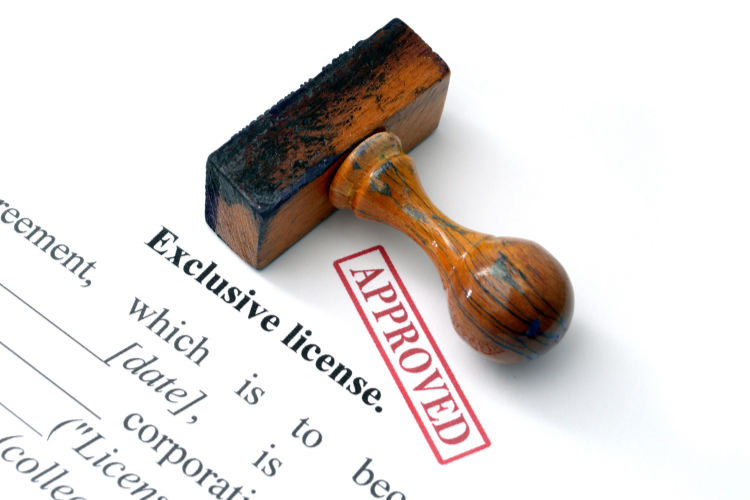Property management involves overseeing the operations and maintenance of residential or commercial real estate properties owned by others.
This encompasses a host of responsibilities, such as marketing vacant properties, screening and approving tenants, managing leases, collecting rent, handling maintenance requests, and ensuring compliance with relevant laws and regulations. This begs the question, do you need a real estate licence to manage property?
In Queensland, individuals seeking to pursue a career in property management must obtain the appropriate licence from the Office of Fair Trading (OFT). This guide provides comprehensive information on the licensing requirements, skills needed, and benefits of becoming a licences property manager in Queensland.
Licensing Requirements
It’s mandatory for professional property managers in Brisbane to hold a valid real estate licence issued by the OFT.
There are two types of licences available for those interested in property management:
Registration Certificate (Entry-Level Licence)
The Registration certificate is the entry-level licence that allows individuals to work as property managers under the supervision of a licensed real estate agency principal.
To obtain this licence, aspiring property managers must complete an accredited course that covers topics such as property management principles, real estate legislation, and industry practises.
Notably, this course is the same one required for individuals seeking a career in real estate sales.
For more reading, check out how much tax to pay on rental income in Aus.
Full Licence
The Full Licence is a higher-level qualification that permits individuals to operate an independent property management business or work as a real estate agent or contractor without the need for direct supervision.
To obtain a Full Licence, individuals must meet additional educational and experience requirements beyond those required for the Registration certificate.
Skills for Successful Property Managers

While formal qualifications are crucial, effective property managers also require a diverse set of skills to excel in their roles.
Some key aspects of property management include:
- Communication and Negotiation Abilities: Property managers must possess excellent communication and negotiation skills to interact effectively with a diverse range of stakeholders, including property owners, tenants, contractors, and regulatory authorities. Clear and concise communication is essential for resolving disputes, coordinating maintenance tasks, and ensuring smooth operations.
- Adaptability and Problem-Solving: The property management industry is dynamic, and managers must be able to adapt to different situations and people. They should be skilled in problem-solving, as they will frequently encounter challenges such as tenant disputes, maintenance issues, or legal matters that require prompt and effective resolution.
- Customer Service Orientation: Providing exceptional customer service is paramount in property management. Managers must be responsive to the needs and concerns of property owners and tenants, ensuring that their expectations are met or exceeded.
- Awareness of Real Estate Practise and Legislation: Property managers must have a comprehensive understanding of real estate practises, laws, and regulations governing the industry in Queensland. This knowledge is essential for ensuring compliance and protecting the interests of all parties involved.
Benefits of Obtaining a Licence
Pursuing and obtaining a real estate licence in Queensland offers several significant benefits for aspiring property managers:
- Legal Compliance: Obtaining the appropriate licence is a legal requirement to operate as a property manager in Queensland. Failure to comply with licensing regulations can result in significant penalties and legal consequences.
- Expertise and Credibility: The comprehensive training and education required for licensing ensure that property managers possess the necessary knowledge and skills to manage several investment or rental properties effectively. This expertise enhances their credibility and professionalism in the eyes of property owners and tenants.
- Career Opportunities and Mobility: With a real estate licence, property managers can explore various career paths within the industry. They may choose to work for established agencies, start their own independent businesses, or even transition into real estate sales or other related fields.
- Potential for Business Ownership: Obtaining a Full Licence enables property managers to operate their own independent property management businesses, providing them with entrepreneurial opportunities and the freedom to build their own successful ventures. It can also increase the fee of their services.
Read also how much commercial management fees are.
Other Considerations
While obtaining a real estate licence is a crucial step in becoming a property manager in Queensland, there are additional considerations to keep in mind:

- Background Checks: The OFT may require prospective property managers to undergo criminal history checks or provide evidence of their good character as part of the licensing process.
- Licence Fees and Renewal: Property managers must pay annual fees to maintain their active licences. Additionally, they may be required to complete ongoing professional development courses or education to renew their licence periodically.
- Compliance with Rental Agreement Laws and Tenant Rights: Property managers must ensure that their practises comply with Queensland’s rental laws and uphold the rights of tenants. Failure to do so can result in legal consequences and damage to professional reputation.
- Professional Associations: Joining professional associations like Real Estate Institute of Queensland (REIQ) can provide property managers with access to valuable resources, networking opportunities, and ongoing education to enhance their knowledge and skills.
Wrapping Up
In Queensland, obtaining a real estate licence from the Office of Fair Trading is a legal requirement for individuals seeking to work as property managers. The licensing process involves completing accredited coursework and training, either for the entry-level Registration certificate or the more advanced Full Licence.
Successful property managers possess a diverse set of skills, including communication, adaptability, customer service orientation, and a thorough understanding of real estate practises and legislation.
Becoming a licensed property manager offers numerous benefits, such as legal compliance, enhanced expertise and credibility, career opportunities and mobility within the real estate industry, and the potential to establish an independent property management business.
However, aspiring property managers should also consider factors like background checks, licence fees and renewal requirements, compliance with rental laws, and the advantages of joining professional associations.
For those interested in pursuing a career in property management in Queensland, it is essential to select a reputable training provider to ensure comprehensive and high-quality education.
Additionally, regularly consulting the Office of Fair Trading’s website is recommended to stay updated on the latest licensing requirements and regulations.

